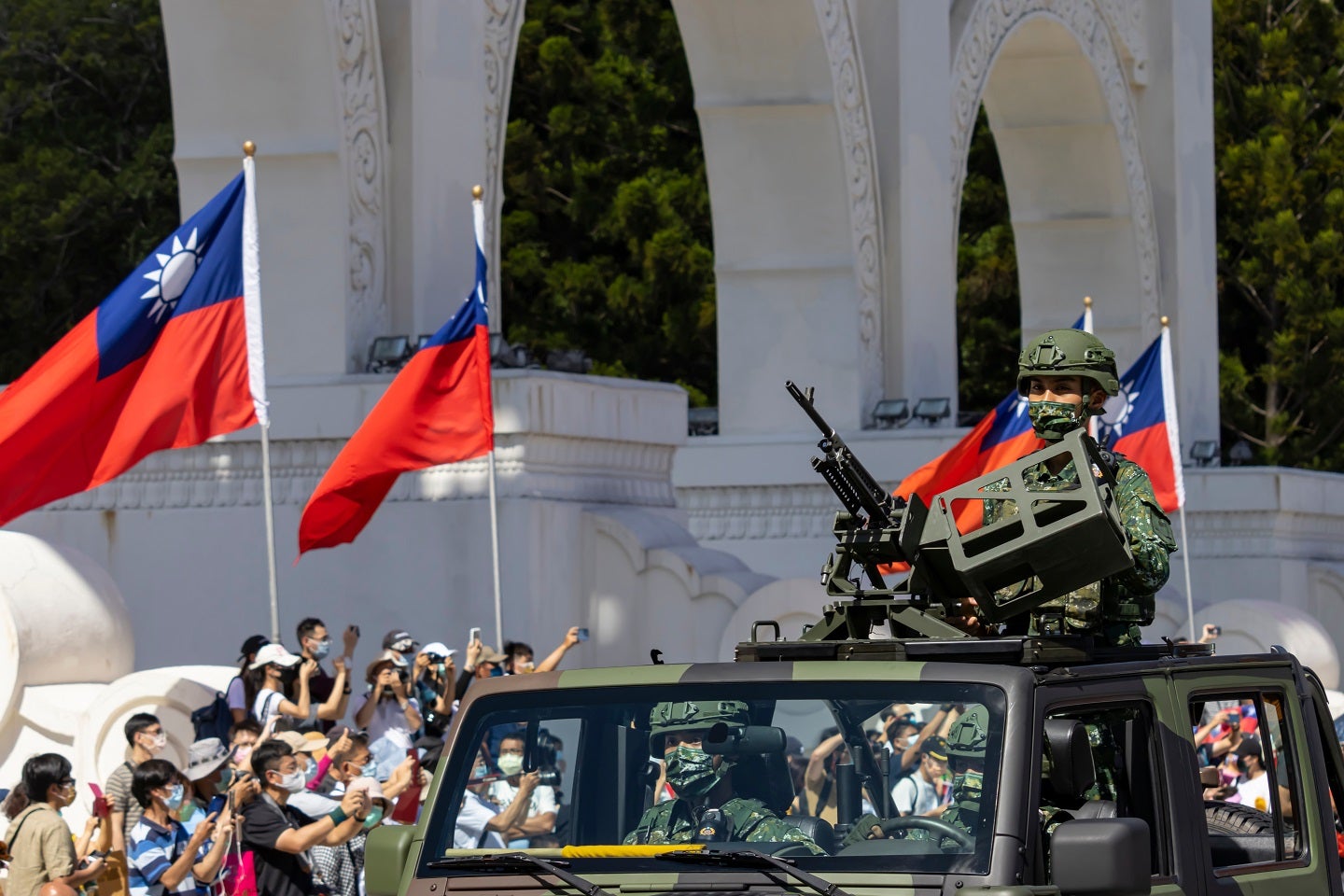On Monday 15 July 2024, the International Institute of Strategic Studies (IISS) hosted an event entitled “Deterrence, Diplomacy and the Risk of Conflict Over Taiwan by Bill Emmott”, discussing the author’s new book of the same title.
Emmott is a writer and consultant best known for his 13 years as editor-in-chief of the Economist and currently co-director of the non-profit Global Commission for Post-Pandemic Policy. The conversation also featured Phillips O’Brien, professor of Strategic Studies at the University of St Andrews. The two discussed at length the strategic calculus of the United States and China underlying possible escalation over Taiwan.
Emmott’s Deterrence book addresses four major factors determining the strength of American-led deterrence in the region: political will, military capabilities, credibility of coalitions and clarity of narratives. In all four areas, a resolute, well-funded defence with clear “red lines” is essential to preventing escalation. Emmott acknowledged that in several ways, his analysis resurrects the Cold War-era deterrence strategy, which has been neglected despite China’s rise. Of note is the risk of a nuclear confrontation between the US and China, home to the second and third-largest nuclear stockpiles after Russia.
A threat to a global hegemon from a rising power raises the risk of war
Emmott challenged the assumption that economic sanctions are a useful tool of deterrence, citing how Western sanctions on Russia have failed to prevent the escalation of war in Ukraine. Russia’s defence industrial capacity still remains viable despite the increase in sanctions since 2022. Emmott concludes that military deterrence is the only effective method to prevent escalation over the Taiwan issue.
Emmott and O’Brien’s analyses contained similarities to the “Thucydides trap” [named after the ancient Greek historian]. This term was popularised by American political scientist Graham T Allison to describe the tendency towards war when an emerging power threatens to displace an existing great power as a regional or international hegemon. As the current global hegemon, the United States benefits the most from the existing world order. Both Emmott and O’Brien argued that the risk of war would most likely arise if China were to determine it has an opportunity to benefit from the overthrow of this global order.
China, not Russia, presents a long-term challenge to the US
The two also extensively discussed the role of Japan, and to a lesser extent, of South Korea as independent but US-aligned third-party actors in the region. Although part of the global US security alliance, both nations can independently increase their defence industrial base and grow their armed forces. With Japan, there is a particular opportunity to increase the size and power of its navy, as well as a possibility to independently pursue nuclear weapons. While such weapons are currently contained by Japan’s constitutionally mandated pacifism, perceived threats may create the political will to remove constitutional restrictions on defence activities.
The implications for the global aerospace, defence and security industries are that there will continue to be significant US and allied investment into the Pacific theatre. Although the Russian war in Ukraine is a pressing issue, Russia cannot present an existential challenge to US pre-eminence, and China’s declared territorial ambitions in Asia, combined with its industry and scientific capabilities, make it a more serious long-term challenge.
This tense security environment influences the growth of the defence industry in Japan and South Korea. Given North Korea’s nuclear sabre-rattling, Japan may pursue an independent nuclear weapons programme. This would carry severe implications for its relationship with China. South Korea is particularly increasing its defence exports to the West and to Europe. While this immediately increases their fighting power, it may undermine European goals to build up its defence industry. Ultimately, such complex geopolitics will heavily influence defence goals and investments in the Asia-Pacific region.





